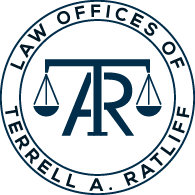The Professional Disciplinary Process
When a professional license is at risk, it’s crucial to understand the steps involved in the disciplinary process. Licensing boards in New Jersey, Pennsylvania, and beyond have established procedures to address complaints and determine whether disciplinary action is warranted. Below is an overview of the key stages in the professional disciplinary process:
Complaint and Investigation
The process typically begins with a complaint filed by a patient, client, employer, or other party. Once a complaint is submitted:
- The licensing board initiates an investigation, which may involve interviews, subpoenas for records, or site visits.
- You may be required to provide documentation or respond to inquiries.
- It’s vital to have experienced legal counsel at this stage to ensure your responses are accurate and do not inadvertently harm your case.
Licensing Board Hearings
If the investigation leads to formal charges, the case proceeds to a licensing board hearing. During this hearing:
- Evidence is presented by the board to support the allegations.
- You have the opportunity to defend yourself by cross-examining witnesses, challenging evidence, and presenting your own evidence or expert testimony.
- Hearings are often highly procedural, making it essential to have skilled representation to navigate the complexities and advocate effectively on your behalf.
Potential Outcomes
After reviewing the evidence, the licensing board may impose one or more of the following sanctions:
- Dismissal: If the board finds insufficient evidence, the complaint may be dismissed.
- Reprimand or Probation: Lesser violations may result in a formal reprimand or probation with conditions, such as supervision or additional training.
- License Suspension: In more serious cases, the board may suspend your license for a specific period.
- License Revocation: For the most severe violations, the board may permanently revoke your license, barring you from practicing in your profession.
Appeals Process
If the board’s decision is unfavorable, you may have the option to appeal. Appeals typically involve:
- Filing a petition to a higher administrative body or court.
- Arguing procedural errors, lack of evidence, or other grounds for reversal.
- Having legal representation during appeals is critical to maximizing your chances of success.
Navigating the disciplinary process requires a thorough understanding of both the law and the procedures unique to your licensing board. At the Law Office of Terrell A. Ratliff, we provide strategic representation at every stage of the process, from the initial investigation to appeals. Contact us today to protect your license, reputation, and career.
